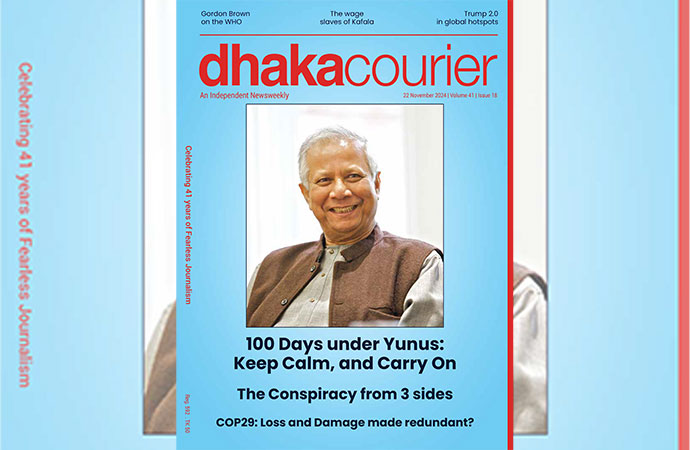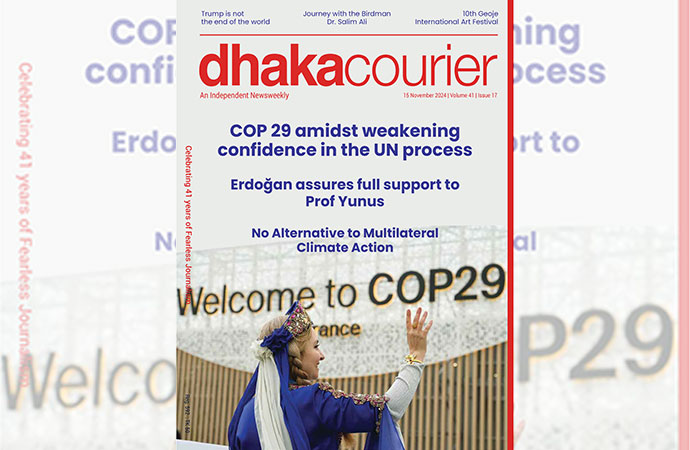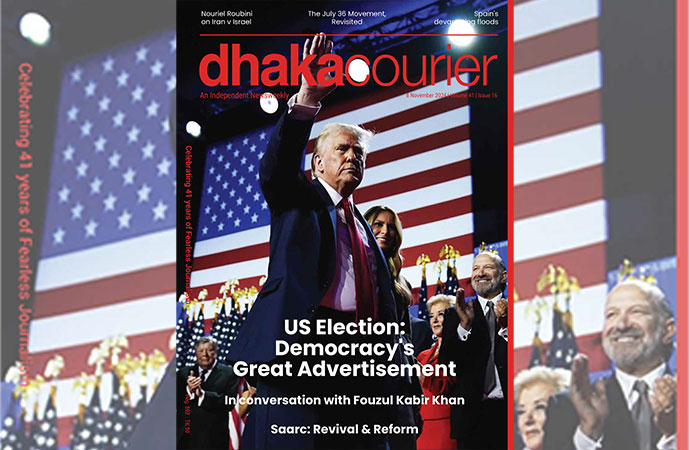Culture

Highlighting the plights of oppressed and downtrodden people
Farrukh Ahmed was a born poet and never hesitated to write about anything he believed from the core of his heart. As a poet, he always searched for truth, honesty and morality during his life. He was not like the so-called seculars and liberals, which we now see in our surroundings.
When he was a student, the poet used to feel fascinated by the humanist movement and involved himself with the left-leaning politics. He believed in the kind of politics which strives to change the lives of downtrodden people along with their socio-economic and cultural concerns. From the mid-forties, the poet started aligning himself with the Pakistan Movement; but his patriotism was praiseworthy when he impulsively supported the Language Movement in 1952 and, later, the Liberation War of the country in 1971.
During the Liberation War, he penned a number of poems, which brilliantly articulated the aspiration of a nation fighting for its existence. An introvert and quiet fellow by nature, Farrukh Ahmed became an outspoken liberal intellectual in the 1950s and early 1960s against injustice, inequality and social and political anomalies. He relentlessly tried to deliver a message against social discrimination and illiteracy.
The poet was raised at a period when the subcontinent was under British rule. During that time, Bengali Muslims were mostly uneducated and socio-economically backward. The bard emerged in the literary scene, when the Second World War was going on and the great famine of 1943 broke out killing millions of starving people. While the great war had caused shortage of food, the situation got out of control after, the rich, cruel and greedy people created artificial crisis in the market by stockpiling huge amounts of commodities and wealth. The poet with his bold and strong voice, portrayed the true picture of the society.
Farrukh Ahmed is widely known as the poet of Islamic Renaissance. Islam was not only the focal point of his writings; it strongly guided his private life, as he nurtured a strong belief and faith in Islamic ideology. His poems denote the spirit of resurrection particularly in the hearts of oppressed Muslims of the then Bengal.
The poet was a pious and decent person and always against all kinds of hypocrisy, deceits and ostentatious name, fame and publicity. His contemporary poets and his late contemporaries regarded him as a reserved, soft-spoken literary genius who belonged to an altogether different world.
Farrukh's writings emphasised the needs and issues faced by the masses and their ways of life. His poems symbolise human welfare, sense of liberty, patriotism and political and historical incidents. Major themes in his poetry and writings include the pains and agonies of underprivileged people, famine, and commoners' dearth of food with expectation of imminent death, human relations, liberal humanism, romanticism, nature, riverine and rustic beauty and more.
Farrukh's contribution to Bangla literature is huge and encompasses almost all branches of literature -poems, juvenile poems, lyrical poems and drama, satirical poems, songs of different kinds, short stories, novel, drama and essays.
But he is best known for his poetic devices, powerful language and the vast vocabulary which brought to his poems a unique and unparalleled shape. He lent many words of his poems from Persian and Arabic languages. The poet had comfortably used the words in his poems as he had a strong command over the languages. He also experimented with the construction of the verses and stanzas.
After independence, the poet was extremely neglected for his political views and convictions. He lost his job and did not get any job from then on. He eventually fell severely ill.
After prolonged illness, the poet died in 1974 without any treatment. But his immense contributions to Bengali literature remains remarkable. His words are always encouraging and well-read among the enthusiastic readers.
Among his poetical works are Satsagarer Majhi, Sirazam Munira, Naufel O Hatem, Muhurter Kavita, Hatemtayi, Habida Marur Kahini, etc. His works for children include Pakhir Basa, Harafer Chhada, Chhadar Asar etc.
In recognition of his literary contribution Farrukh Ahmed was awarded the Bangla Academy Award, President's Award for Pride of Performance, Adamjee Prize (1966), UNESCO Prize (1966), Ekushey Padak (posthumously, 1977) and Swadhinata Puraskar (posthumously, 1980).
June 10 marked the 102nd birth anniversary of Farrukh Ahmed.

























Leave a Comment
Recent Posts
CA Yunus to hold talks with Ti ...
Foreign Affairs Adviser Md Touhid Hossain on Sunday met President of T ...
Cold wave disrupts daily life ...
Bangladesh is currently facing its first tangible cold wave of the sea ...
Bangladesh set to celebrate Victory Day Monday
Can the environment adviser save us from Dhaka’s tox ..
The International Monetary Fund
Fifa confirmed Saudi Arabia's hosting of the men's 2 ..